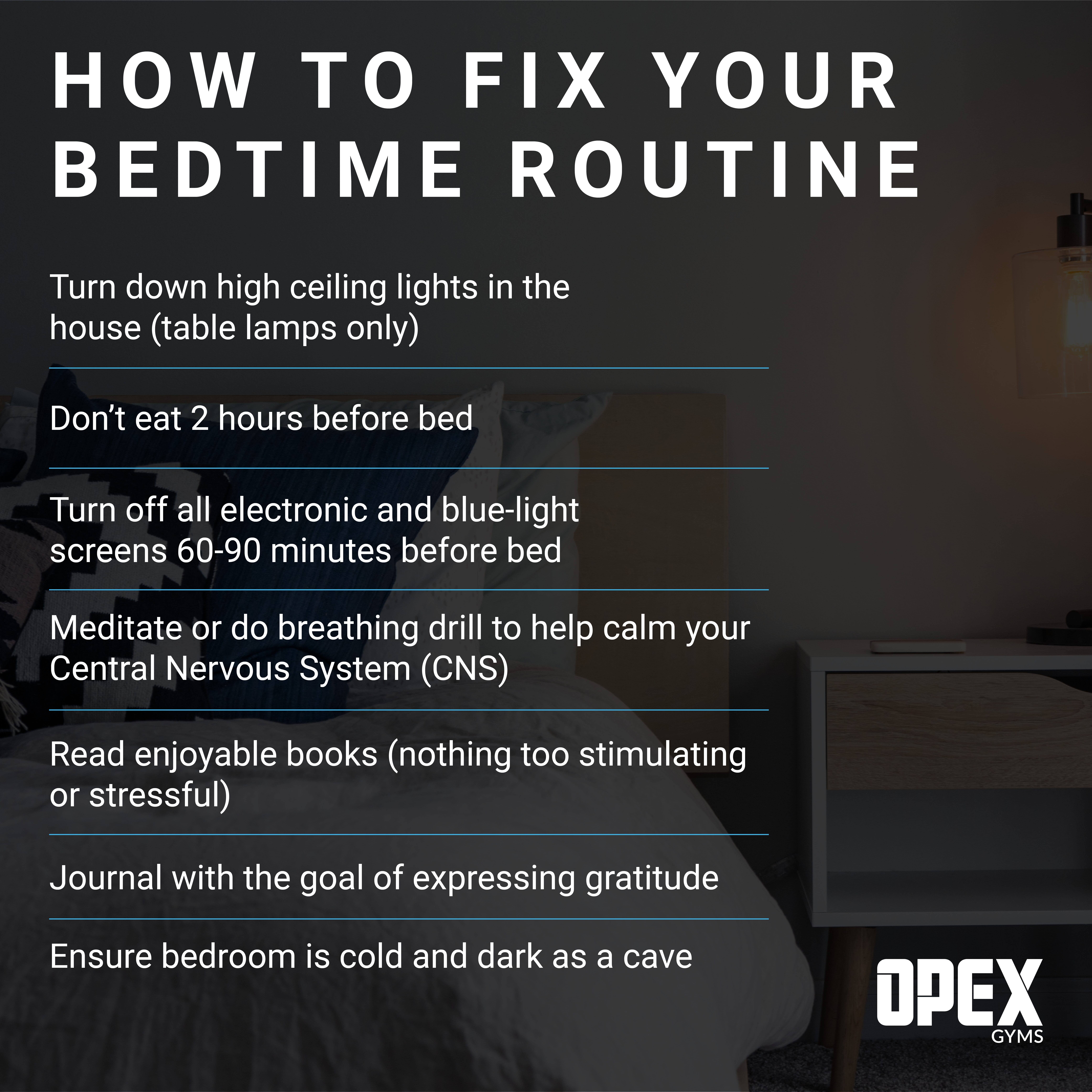We Know Why You Can’t Sleep
The greatest workout is only as effective as your ability to recover from it, and the most important factor in your recovery is sleep.
Sleep-wake cycles are in our DNA. Honoring them is essential to our physical and emotional wellbeing. We are wired to sleep with the moon and rise with the sun – our natural circadian rhythm. This internal biological clock, which is tied to daylight, regulates hormone release and other important bodily functions. Sufficient time asleep is necessary for the secretion of hormones that are responsible for regeneration and repair.
The problem is, in our wired-and-tired society, sleep quantity and quality is at an all-time low. Blue light exposure from electronics, light pollution, being indoors all day, irregular bedtimes, caffeine, alcohol, and work and emotional stress all negatively impact our sleep-wake cycles. Put simply, these omnipresent stressors stimulate the production of our stress hormone, cortisol, and suppress the production of melatonin, which makes us sleepy.
This hormone disruption makes it hard to fall asleep and stay asleep. It is important to note that there is a huge difference between 8 hours of uninterrupted sleep and 8 hours of broken sleep. Waking up multiple times throughout the night disrupts your sleep cycle and hampers the quality of your sleep.
If you regularly experience energy slumps, are struggling with fat loss or muscle gain, or have trouble with mental acuity, chances are your sleep needs some attention. Follow this checklist for better sleep.
Go to bed and wake up at the same time every day. Consistency is key to improving sleep. Our bodies love the predictability of a regular sleep schedule. Aim for 8 hours, with at least 2 hours of that before midnight.
Get sunlight exposure and watch the sunset. Sunlight exposure signals ‘wake’ and the sunset signals ‘sleep’ to our brains, so that they produce the appropriate hormones to give us energy or to make us sleepy. Walk in the sunshine between 8-3pm without sunglasses and with maximum skin exposed to encourage cortisol production and suppress melatonin.
Reduce blue light exposure in the evening. Stay away from electronics 1-2 hours before bed. In a worst-case scenario, wear blue blockers and use an app like f.lux to limit blue light. We might know the difference between the sun and electronics, but our bodies don’t and will signal “wake up!” even if it’s 10 pm.
Create a nighttime ritual. As bedtime approaches it’s important to wind down and bring the body into a parasympathetic, rest-and-digest state. Leave behind the stress of the day and enjoy relaxing activities. Meditation, diaphragmatic breathing, journaling, physical touch and brewing non-caffeinated herbal tea are all good options to explore.
Practice sleep hygiene. Sleep in a cool, pitch black room. Bonus points for a white noise machine or ceiling fan. Put your phone on Do Not Disturb, or even better, leave it outside the bedroom. Even the smallest light will suppress melatonin production.
Use a sleep tracker. Apps like Sleep Cycle and Apple Health are a great tool for creating awareness of your sleep habits. Observe how many times you wake up throughout the night and your sleep patterns over time to measure your consistency in quality and quantity.
Work with an OPEX Coach. They’re trained in how to optimize recovery through lifestyle practices and can design you a plan to progress your sleep, just as they would your workout. Importantly, your coach will create accountability and a step-by-step plan for upgrading your sleep.
If you’re going to take the time to invest in your health and fitness, it’s essential that you set a foundation for recovery by valuing great sleep!

